Search Results
Showing results 1021 to 1040 of 1256
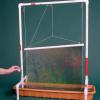
Soap-Film Painting
Source Institutions
Make a big canvas of iridescent color with pvc pipe! In this Exploratorium Science Snack, you'll need to cut and assemble some PVC pipe, but the pay-off, the soap-bubble canvas, is big.
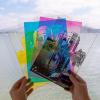
The Three Little Pigments: Science activity that demonstrates the primary and secondary colors of lightScience activity that demonstrates the primary and secondary colors of light The Three Little Pigments Know your C, M, Y, and K.
Source Institutions
Align four color transparencies, each one a single color (cyan, magenta, yellow, and black), and see a beautiful full color image.
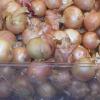
Isolation of DNA from Onion
Source Institutions
This laboratory exercise is designed to show learners how DNA can easily be extracted from onion cells. It includes an optional test for the presence of DNA.

Secret Codon
Source Institutions
In this activity, "write" a secret message in genetic code as beads on a string.
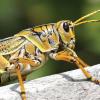
Invent an Insect
Source Institutions
In this creative activity, learners will find out what makes an insect an insect by studying examples of insect adaptations and by examining why there are so many different types of insects.
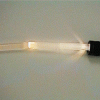
Glue Stick Sunset
Source Institutions
In this activity, learners explore why the sky is blue. Learners model the scattering of light by the atmosphere, which creates the blue sky and red sunset, using a flashlight and clear glue sticks.
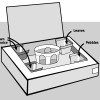
There’s No Place Like Home!
Source Institutions
In this activity, learners make their own bug boxes and test the habitat preference of selected "minibeasts" (bugs).
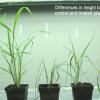
Effect of Environment on Plant Growth
Source Institutions
The purpose of this plant biotechnology activity is to demonstrate the effect of changes in the environment on the growth and fertility of landscape grasses and crop grasses such as wheat and rice.
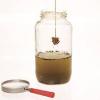
Planaria Fishing
Source Institutions
In this activity, learners capture and observe planaria, which are worms that eat tiny pond critters.

Born of Blood: Craft Stick Chromosomes
Source Institutions
In this activity, learners work in groups to match craft sticks that represent chromosomes. Learners must define critical attributes of their chromosomes as they look for matching chromosomes.
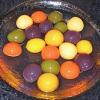
Jelly Beads
Source Institutions
Learners add drops of alginate solution to a solution of calcium chloride. The alginate does not mix with the calcium chloride, but forms soft gel beads.
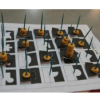
Fruity-Glows: Pictures of Health on a Microarray Canvas
Source Institutions
In this activity (page 12), learners apply the concepts of pixilation and pointillism to the world of biomedical science.
Trees: Buds and Twigs
Source Institutions
In this hands-on nature activity, learners observe the emergence of leaves and flowers. Branches from trees and bushes are collected in the early spring, brought indoors, and placed in water.
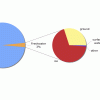
Earth's Water: A Drop in Your Cup
Source Institutions
This creative lesson plan provides a visual way for learners to gain knowledge about the finite amount of fresh water on Earth and encourages the discussion of the various ways to conserve this resour
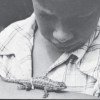
Leapin' Lizards
Source Institutions
In this outdoor activity, learners first explore lizard feeding behavior by creating a "lizard rig" to dangle different objects in front of live lizards and see which objects the lizards try to bite.
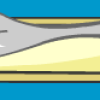
Dinosaur Bone Experiments
Source Institutions
This activity features two connected hands-on activities about dinosaur bones.
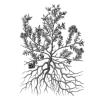
Root Observations
Source Institutions
In this activity, learners will investigate and compare the root systems of plants. Explore how weed and edible plant roots differ, and take a closer look inside with the careful use of a knife!
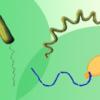
Balloon Bugs
Source Institutions
In this activity, learners make balloon models of disease-causing bacteria.

Think Fast!
Source Institutions
This is a quick and simple demonstration about reflexes (fourth activity on the page). One learner stands behind a see-through barrier like a window or wire screen.
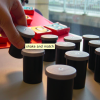
Shake and Match
Source Institutions
In this activity, learners create a hearing based memory game that they can share with friends.
